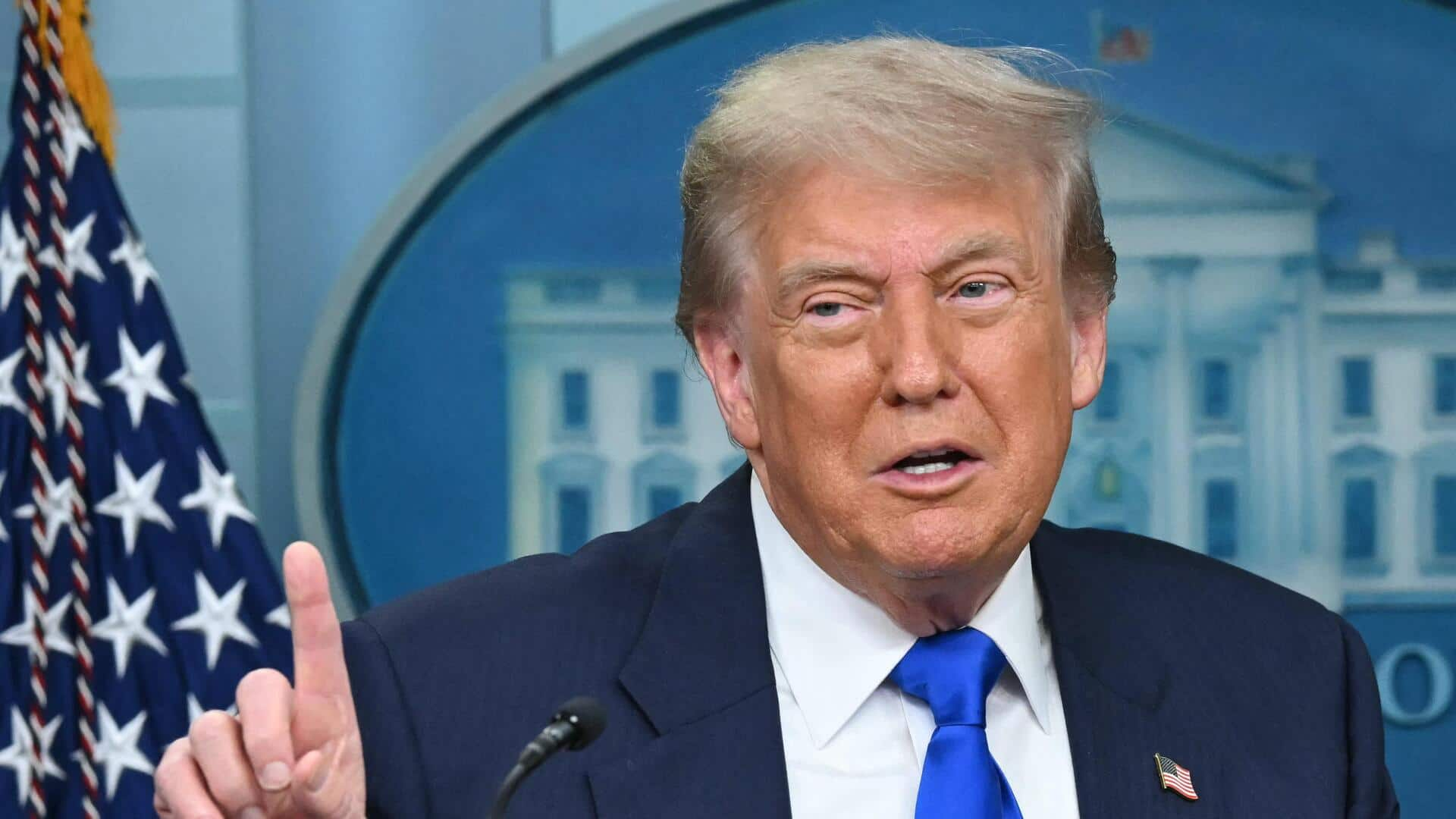
Trump says he won't extend July 9 trade deal deadline
What's the story
US President Donald Trump has said that he doesn't expect to extend the July 9 deadline for trade partners to strike deals with the US and avoid hefty tariffs of up to 25%. In a recent interview on Fox News' Sunday Morning Futures, Trump said, "I don't think I'll need to" extend the cutoff. However, he also added, "I could, no big deal," stating that he could do so if needed.
Tariff strategy
Initial stance and press briefing remarks
Trump's comments come after he said Friday that the administration could "do whatever we want" with the deadline, whether by extending or shortening it. "I'd like to make it shorter. I'd like to just send letters out to everybody, 'Congratulations, you're paying 25%,'" Trump said in a press briefing on Friday. Trump's initial stance was to impose 25% tariffs on countries that don't strike deals by the deadline.
Negotiations
Pressure campaign started earlier this year
The Trump administration started this pressure campaign earlier this year, asking trading partners to cut deficits and remove barriers during the negotiation period before April's suspended country-based tariffs are reimposed. However, Treasury Secretary Scott Bessent has said that while "countries are approaching us with very good deals," it may not be possible to finalize agreements with all major partners by July 9.
Trade wrap-up
Treasury Secretary suggests more realistic wrap-up by Labor Day
Bessent suggested a more realistic trade wrap-up by Labor Day, saying "10 or 12 of the important 18" relationships could be finalized first. This highlights the contrast between Trump's tough public stance and the complicated reality of negotiating with dozens of countries at once. Despite these challenges, trade teams remain active with recent Washington meetings involving Indian officials, one country Trump said is close to a potential deal.
Deal depth
Concerns over the comprehensiveness of trade deals
There are major concerns over the comprehensiveness of trade deals that can be struck by either deadline. The much-publicized UK deal still has key issues unresolved, while the recently signed China agreement leaves questions on fentanyl trafficking enforcement and US exporters' access to Chinese markets. These cases highlight fears that deals made under deadline pressure may not be thorough enough.
Tariff impact
Hardline stance gives leverage but risks disruptive tariffs
Trump's hardline stance gives him leverage but also risks imposing economically disruptive tariffs if meaningful agreements aren't reached. The administration continues to present its approach as necessary to correct unfair trade imbalances, even as businesses prepare for possible tariff impacts if negotiations extend beyond July without extensions or completed accords.